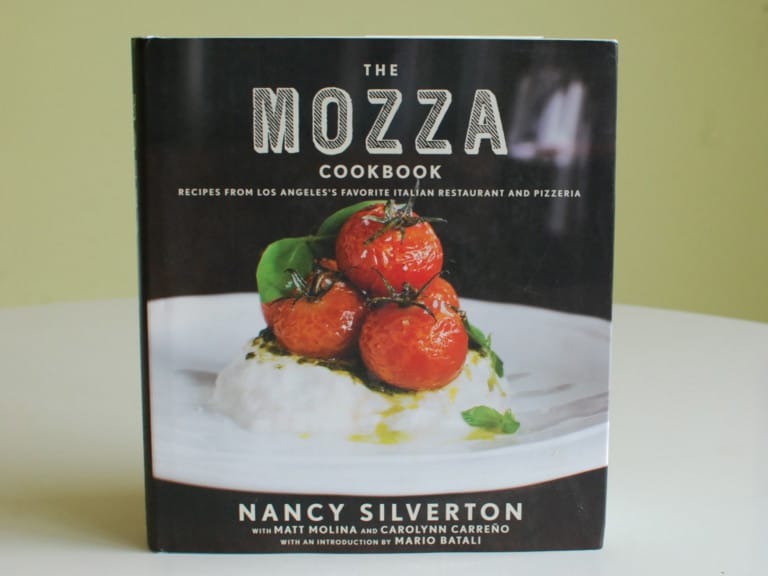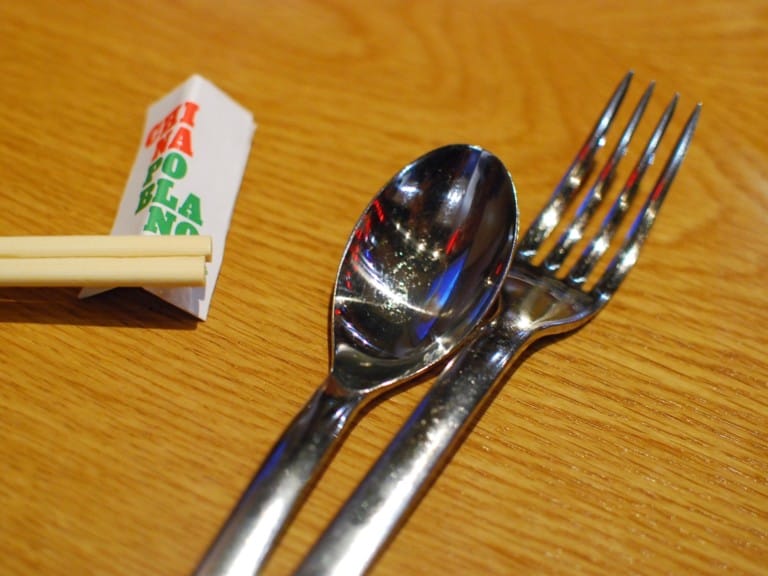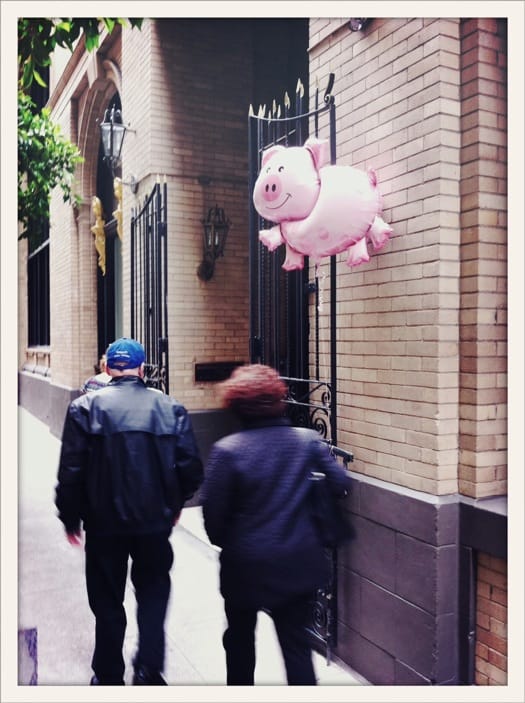I was recently accused of having less than “many years” of experience in restaurants. Well for your information, I’ve been dining out since I was the tender age of 6 years old, ordering steak and lobster for myself (yes, without my parents’ help) at fancy restaurants. Of course this wasn’t an everyday ordeal, but eating at fine establishments has been a way of life for over 15 years. I’ve fully entrenched myself in dining out for the last 4 years, going at it full-time at a pace of 6-10 meals per week consumed outside the home. My point isn’t to elaborate on what qualifies me as a diner, for anyone with an acute sense of awareness can do this without an overwhelming battery of experience. Rather, one just needs to observe aspects of a meal and have enough to compare each experience with another.
I have many decades of dining out ahead of me, with thousands of meals on the horizon. If I were change a few things about that experience, if I could control the general sentiment of restaurateurs and chefs, these would be my suggestions:
Eliminate expensive valet parking
I love that at Korean restaurants, valet parking is either free (with an expectation of a minor tip) or a trivial cost of a few dollars. I understand the economic necessity to provide this service to only those who are willing to pay for it, but why not slap on the cost to the appetizer menu or entrees, adding a dollar or two here and there? Diners wouldn’t really notice the difference and would more greatly appreciate the reduced parking fee. This is mainly a problem in the car-centric LA dining scene, but I say the same rings true for New York, Chicago or San Francisco. If parking is prohibitively expensive for a restaurant, then make a deal with a local parking garage and offer customers the option of parking either valet or self-park. In both events, incorporate the cost into the meal. $10+ for valet is just ridiculous.
Consider serving excellent bread, not just something mediocre
A great restaurant will focus on the small things, like superb bread and butter service. There’s something about bread that makes us realize that we are having a good meal. It’s like a foundation or a clean slate for the palate upon which other delights may entertain us, like the bass guitar of a band or a neutral color on a canvas. If this part is worthy of a delicious note, then diners get the sense that even better lies ahead. Of course, don’t let the bread outshine the meal as that would be a shame.
Streamline reservations
It’s worth having a separate reservationist for a busy restaurant, instead of making the hostess/host handle this while attempting to seat tables. Offer concessions to those willing to dine outside of prime hours, such as a free glass of wine for diners making a reservation before 6:30 or after 9:30. I wouldn’t call it happy hour as that has some other connotations; just a little something to encourage diners to come at a less crowded time, which will ease your kitchen and front-of-house staff. Give a little, take a lot more. For the prime hours, don’t overbook and expect people to wait at the bar. That’s an easy way to build up a lot of negative sentiment. Also, leave a bit of room in the bar area for walk-ins, no matter how high-end the restaurant.
Work with all types of budgets and glean economic value from every customer
If you push a $150 bottle of wine on recent college grads who’ve landed a job, you won’t get much luck. Rather, encourage them to get a beer selection, or a modestly priced bottle that you’ve convinced them would save money for the table. For an older couple having a celebration, encourage them to get a bottle of bubbly that’s meaningful, rather than expected. It doesn’t have to be 1970’s Krug, but something to make the evening special. I always like to know that what I’m ordering is “worth it.” People don’t mind paying for a particular dish or appetizer if the value is there. I remember ordering a lamb chop appetizer at Rustic Canyon for a pricey $18. The flavor was phenomenal and we quickly forgot the cost when we realized it might’ve been a bargain. $26 for a chicken breast entrée is both unexciting, unmemorable, and hardly worth the cost even with “jidori” slapped on it. Desserts and after-dinner drinks are important for all good meals, but seduce diners after the main courses, rather than seeming disappointed when people don’t seem interested.
Parting gifts and salutations give it a personal touch
The best restaurants send the customer with something home, and offer a warm, cordial salutation upon leaving the restaurant. This personal touch assures the diner that the meal was not only worth it, but worth having again on another evening or occasion. Too often restaurants are busy setting the table for the next customer when they’re forgetting that they have the opportunity to lock-in a customer with a final “thank you” and “good bye.” And nothing helps memory more than reinforcement: a cute package of pastries, muffins, or cookies for the next day does wonders, and at a reasonable cost. It also differentiates you from the pack. Two of my most memorable meals involved these sweet take-out packages.
Remember names, faces, and dishes
It’s not the perfect analogy, but Christine’s (and my) favorite bartender, Marcos Tello, remembers nearly every drink we’ve every ordered. Nancy Silverton takes home and reads every comment card left at Mozza. Memory works better when exercised, so work on it when name/face association. Even if you don’t remember every customer, just saying, “thanks George, have a great evening” works wonders. When the person comes back, remind them, “you had the scallop dish last time, we have a special tonight that you might like.” That’s like throwing gold on your bottom line. People remember the small things. It might cost you a few bucks, but reward repeat clients with something special, like a free appetizer, or a few glasses of wine. Count these concessions every month and see how it affects growth in revenue.
Manage your website and online operations
Other perceived expense that goes miles toward increasing visibility, publicity, and interest. Get on Twitter if you haven’t already and hire your reservationist to manage it during the day. It’s possibly the best way to draw attention to your restaurant in today’s crowded marketplace. Also, it helps to update the website often with new menus, updated news of events, and personal information about chefs, cooks, servers, managers, and bartenders. It’s not hard to think up a few Q&A’s of staff and post them on the site so people can see how cool the people are that work for you. People are increasingly checking websites for information and restaurants can use them as a sales device to get people in tables. Make things user-friendly and modern without being too cheesy or overdone with special effects.
Send a personal email to valued customers
Who doesn’t use e-mail these days? If you get people on your e-mail list, don’t always send out mass emails. Those are annoying and go straight to the trash bin. Instead, have a manager write out a quick two-line e-mail thanking the customer and giving them contact information for another visit. This is also a way to get quick feedback about the customer’s experience without it having to get plastered on a Yelp or Chowhound review. You can address things that might’ve gone wrong and improve service.
Show commitment and quality
Frayed, dirty menus. Sticky bathroom floors. Dinged silverware. Linty wine glasses. Unkempt servers. Stodgy cocktail menus (full of “-tini’s”). Tipsy, unlevel tables. Dusty surfaces. Crappy chairs. Ugly plates/chinaware. If the average customer cares about these things at home, then a restaurant should go above and beyond to make sure these things are in order. Diners are savvy and observant, and are easily bothered by things that might give the impression that the restaurant doesn’t have it all together. Also, don’t think that one or two aspects of excellence will overshadow faults. Great entrees and appetizers don’t excuse boring desserts or an unremarkable wine/cocktail/beer list. It doesn’t take much to revamp those second two aspects, especially since they provide a bulk of profit margin to the restaurant. Care about every little iota and it’ll show.
Instill professionalism and friendliness to wait staff
It’s the easiest thing for a restaurant to be snobby. This is not only ridiculous, but it’s perhaps the most off-putting thing a restaurant could do. I think someone who’s personable and friendly is much more desirable than someone who knows their food. You can always teach someone about the food, but you can’t make someone friendly overnight. If I were a floor manager and saw a server exude a special level of hospitality, I would reward the person with free meal coupons for when they dine at the restaurant on an off-night. I would quickly dismiss anyone who lifts their nose
Know what it takes to “win”
In the game of restaurants, the winner takes all. Well, at least the long term winners, the restaurants which succeed over time and serve as the meeting place for lovers, couples, groups, celebrations, casual dinners, and more. Restaurants are a public dining room where everyone instantly becomes part of a family, weaved into the life of people around them. We hear happy birthdays, proposals, eloquent discussions, funny stories, and earnest affections. A successful restaurant captures these moments in people’s lives, earmarking memories along the way. To capture “business” isn’t just to give a product and receive compensation (though it’s duly earned), but become a relevant figure in the community. The name of the game in restaurants isn’t living to the next month, but living into the next decade. Operating with this mentality helps a restaurant to realize its place and purpose, giving it a venerable mission in this often impersonal and fast-paced world.









Blog Comments
Teenage Glutster
November 16, 2009 at 6:31 PM
funny, in my first post when I knew nothing whatsoever of dining out or foodblogging in genera, I would almost always make a reference to the bread served, if any.
You weren’t kidding when you said you wanted to be a consultant!
like others have said, most of your ideas should be common sense given the times, oh well
David Haskell
July 10, 2009 at 11:03 AM
Casey,
BRAVO….
casey
July 9, 2009 at 8:01 PM
Just a thought -how many of you have called or emailed a restaurant to thank them? Trust me, it is worth more than you know.
David Haskell
July 9, 2009 at 11:37 AM
HAHAHAHA…..would you like a job. You seem very qualified with all your expertise. Man i was raised dinning in 3 star michelin restaurants as well…but for some reason decided to go and get a bachelors degree in hotel restaurant mgt. Funny when i worked for Guy Savoy in paris he didn’t seem to give a shit about my dinning experiences as a 10 year old…But, hey fuck it everyone is expert. Your expertise is refreshing. Thank you from allt he restraunteurs who spend 15 tears working for other people learning about p&l statements…raising money, putting our money into projects …dealing with customers, employees and recessions….thanks for your advice…you complete me
Gourmet Pigs
June 3, 2009 at 4:27 PM
Mostly Running:
FIG at the Fairmont Miramar offers free valet.
XIV charges $14 for valet (And they probably won’t let me in if I come on bike anyway). I can understand Hollywood restaurants that do not have their own parking lot and only have deals w neighboring public lots charging $8 or so, but XIV have their own adequate lot and still charges $14. Plus tips, too.
mattatouille
June 3, 2009 at 4:14 PM
Hey Mostly Running, thanks for your kind input.
– Nothing guarantees patronage, but certain things help. Every little bit matters unless you missed the point. It also helps you stand out from the crowd. Imagine a top-tier restaurant offering free valet.
– Charging for bread is ridiculous so don’t get into that, unless you’re Breadbar of course. I was saying this because I’ve had too much ordinary bread. Again, it’s about distinction. If you have excellent bread, sure I’d be willing to pay for it.
– How are reservations NOT good for restaurants? Answer that first. Obviously there’s a strata of restaurants that don’t require one, but that isn’t an ideal way of tending to customers.
– So your point is…it’s good to give stuff away, but..you shouldn’t?
– With so many people looking for jobs these days, you can’t say it’ll be that expensive to hire someone to manage the site. And the point of my argument is that there’s a cost-benefit relationship to look at, especially since the website is the main place for marketing the restaurant. There are too many restaurants that neglect their site.
– restaurants can build personal relationships too. Yelp/Chowhound does provide feedback, but it’s much better to get that feedback from valued customers.
I said restaurants SHOULD do these things because often they’re not. If they were so obvious, I wouldn’t have to mention them. When it comes to cost structure, every restaurant has different priorities and ‘appetites’ for a certain level of customer service and dedication. It’s for them to figure out where they want to focus and do them well. In the end these are all ideas, you’re more than welcome to suggest some of your own.
mostly_running
June 3, 2009 at 1:39 PM
Many of these should be common sense to restaurants, but you definitely come across as a douche suggesting that since you’ve been ordering lobster and steak as a six year old it gives you some special insight.
“Eliminate expensive valet parking”
Give something to the customer, absorbing the cost for the sake of their non-guaranteed return patronage. Sure, good plan. Ride a bike.
“Consider serving excellent bread, not just something mediocre.”
What if the restaurant charges for absolutely sublime bread? Would you then ask that it be free because they are already providing it?
“Streamline reservations”
Reservations are not good for most restaurants. You’re suggesting that a courtesy to the guest should cost more money for the restaurant. Hire someone else, no problem!
“Parting gifts and salutations give it a personal touch.”
It does give it a personal touch, but more like one that you wish you had lube for than anything else. Sure, give more shit away. All for the salutations though!
“Manage your website and online operations”
Agree, though again you’re talking about spending more money.
“Send a personal email to valued customers.”
Maybe the dedicated reservationist can handle these, but pay him or her an extra $2 an hour? Yelp, chowhound and the many good food blogs in your neighborhood and mine already handle this, providing the level of anonymity for would-be food critics that they need.
cobsbread
May 31, 2009 at 10:43 PM
I like reading yr suggestions, Matt. Sad how so many of these common things are missed…
mattatouille
May 30, 2009 at 4:20 PM
as they say, common sense isn’t so common.
kevinEats
May 30, 2009 at 5:53 AM
I’m digging the new photo.
But seriously, I do agree with these suggestion. Many of them should be common sense to restaurants.